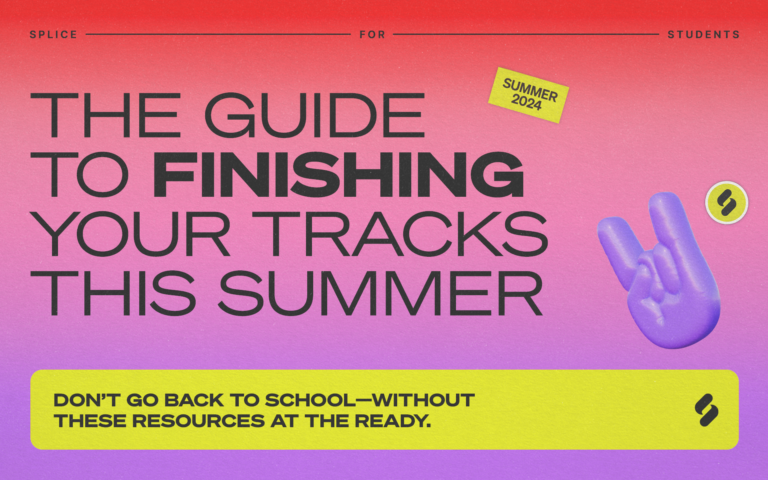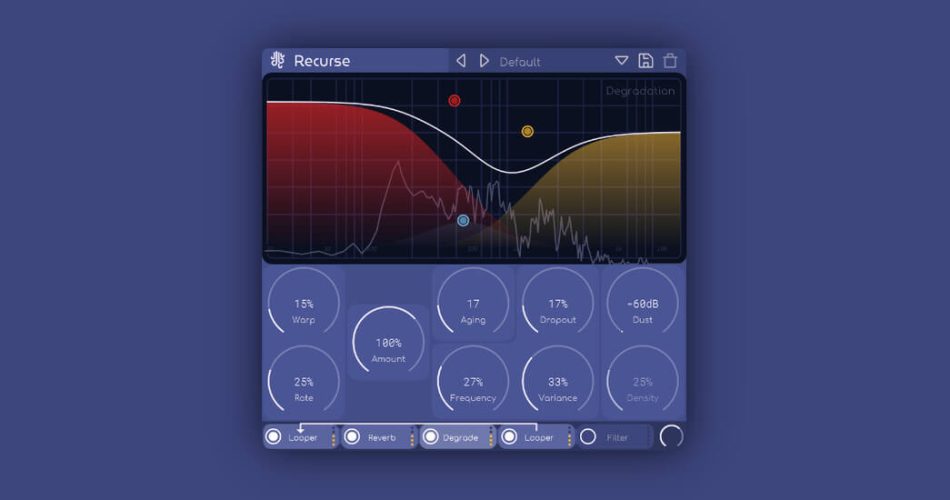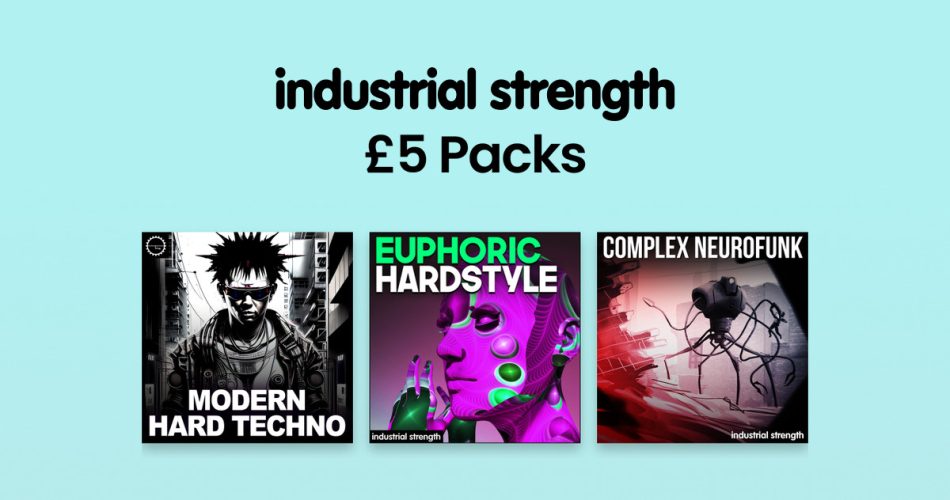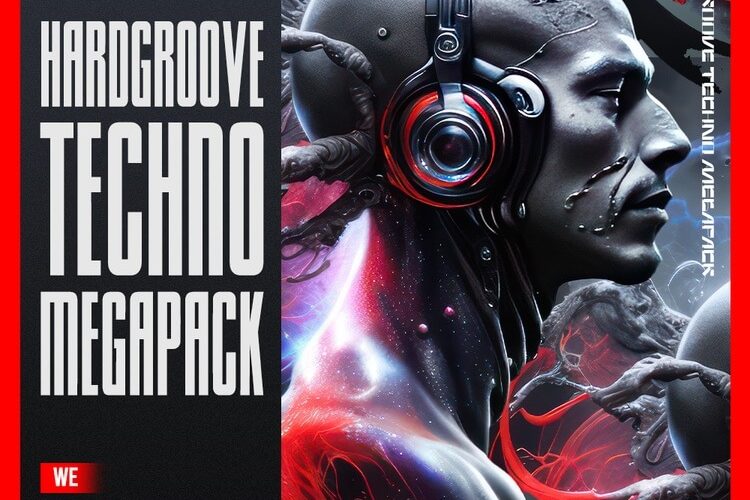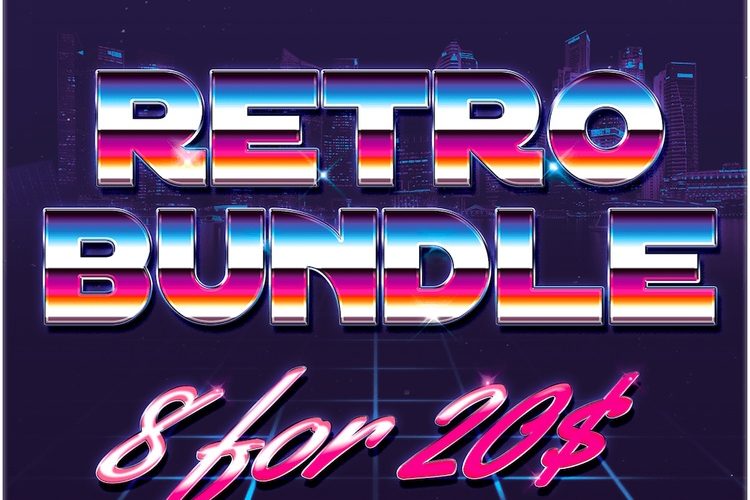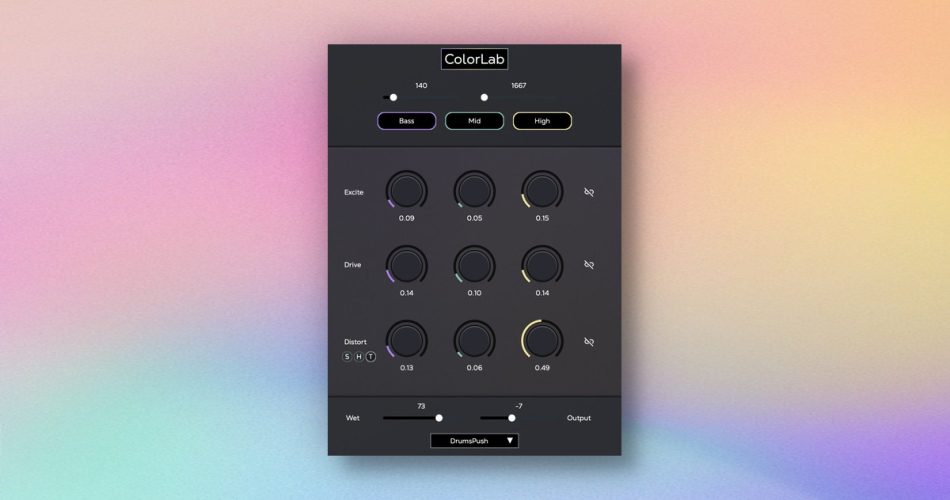Music Industry Advice: Jesse Brede from Gravitas Recordings and Gravitas Create
 Welcome to the third installment of Music Industry Advice – our interview series with today’s most successful managers, label workers, and industry professionals. In this series, we share the results of our interviews with these experts – the stories of their successes and the strategies that got them there, from broad mindsets to specific techniques. In this third interview (catch … Read More
Welcome to the third installment of Music Industry Advice – our interview series with today’s most successful managers, label workers, and industry professionals. In this series, we share the results of our interviews with these experts – the stories of their successes and the strategies that got them there, from broad mindsets to specific techniques. In this third interview (catch … Read More

Welcome to the third installment of Music Industry Advice – our interview series with today’s most successful managers, label workers, and industry professionals.
In this series, we share the results of our interviews with these experts – the stories of their successes and the strategies that got them there, from broad mindsets to specific techniques.
In this third interview (catch the first and second here), we’re joined by Jesse Brede, the founder of Gravitas Recordings and Gravitas Create.
Gravitas Recordings is an Austin, Texas based multi-genre electronic record label and creative collective that works with acts like CloZee, Au5, Cristina Soto, and more. Gravitas Create is its partner company specializing in production education.
Having worked with over 300 artists of all levels of success, Jesse truly understands what it takes for an artist to succeed from the ground up.
In this article, we cover Jesse’s advice on getting started – the mindset required, the early stages, how and when to sign with a manager, establishing relationships, and dealing with rejection.
***
“Music doesn’t have to have vocals or lyrics, or incredible sound design, or anything like that – it just has to give people an emotional response. If you think about your favorite song, very rarely will it be your favorite just because of the sound design, for example – no, it makes you feel something, and that’s why you like it.”
***
The Professional Mindset
Ten years ago, the competition in EDM was smaller – a lot smaller. After-school producers could play mainstage. Passionate hobbyists could become legends.
But now, EDM is mainstream, and every other teenager wants to be the next Deadmau5 or Porter Robinson. Talent exists everywhere nowadays, but only a few individuals make it to the top. So what separates the successful ones from the bedroom producers?
One of the things I’ve seen that separates professionally touring artists from bedroom producers is that the successful ones really treat their music like a job.
They show up every single day and create. In their early days, Tritonal were in the studio from 9:00 AM until 6:00 PM Monday through Saturday, every single week.
If you want to make a living from being a producer, making music will literally be your work – so treat it like you would any other job. Show up day in and day out, and not only on the days you feel like it.
This doesn’t mean that you have to produce for 54 hours a week to reach success – but it will certainly come more quickly.
Time isn’t the only factor, though:
A necessary component is work ethic – show up on time, be sober, and take the job as seriously or more seriously than we do.
Bring your best, and really be committed to your career.
If you sit in the studio for eight hours, but you’re buzzed and on your phone for half of it, you’re wasting everybody’s time – including your own. Nobody is going to want to work with and invest in you if you’re too much of a risk.
If you don’t show that you really care about your project, how can you expect others to care about it?
Also, don’t think that being insanely talented means you don’t have to work hard. Given the current state of competition in the industry, ‘insane talent’ is simply a barrier to entry – it takes more than talent to actually make it.
Having worked with CloZee, Cristina Soto, and a number of other successful artists, Jesse has come to see a commonality that goes beyond their music:
You can’t just be hyper-creative. You have to put in the work and know exactly what your vision is.
Set your intentions, and put in the work day-in and day-out. Set your goals and understand how to work backwards from them.
Be patient. Things develop.
Jesse brings up a great piece of advice – work backwards to achieve your goals. If your dream is to play EDC Mainstage, think about what you need to do before that can happen (for example, playing Do LaB at Coachella). Then, figure out what needs to happen before that. Keep developing that plan until you can realistically begin achieving it.
Don’t work to complete your biggest goal – work to complete the smaller tasks and goals that eventually lead to the final dream.
Lastly, patience is key; you need to allow time to complete all of the smaller steps before you can reach your biggest goal.

The Early Days
At Heroic, we get a lot of requests for official management. Most of them read something like: “My music is sick, i just need your help. show me how to market it.”
(Side note: remember to be professional when reaching out – more on this later)
The reality is, 90% of these requests are premature. The job of a management team isn’t to create the artist’s vision – it’s to help the artist fulfill it.
Like Jesse said, it takes time to develop an act, and a full-scale management agency might not be right if you’re new to the game.
If you’re just getting started, look for a friend or someone in your network that you trust and that believes in you. Look for someone who has a good business sense and solid work ethic.
You both have to be willing to stick it out through those first two to three years where it’s a ton of hard work and not a lot of money.
You need to find someone willing to make an investment with you, be along for the ride, and bet on your success.
The biggest managers today didn’t start from success – almost all of them began with a friend they believed in.
Full-scale agencies are going to be hesitant to work with you without a track record of success, which is why it’s a good idea to seek out a personal connection first.
When to Sign With a Manager
Even if you manage to connect with a large agency, exercise caution – it might not be the right time yet.
One mistake I’ve seen is artists taking on managers and agents too early in their career.
These types of working relationships often revolve around a percentage of sales around 10-20% of gross, so if you hire both an agent and a manager, you could be giving up 30% of your profits.
Add on expenses for travel, food, and things like that – if you’re only pulling in $500 a gig, there’s not a lot of meat on the bones left for you.
Do the math before you sign anything. So many small artists complain about their managers and agents taking too big of a piece of the pie – but the reality may just be that the pie isn’t big enough yet.
Wait until it makes financial sense, you’re pulling in closer to $1000 per show, or you’re getting enough incoming offers to the point you’re overwhelmed – only then should you seek out a manager.
Having a manager is more of a luxury than a necessity.
Now, if you’re in a position to afford that luxury, having a manager can certainly still help. Early tours are always an investment – you still need to prove yourself in new markets, so they rarely pay off big the first time around.
So, if taking an upfront loss to hire a manager will result in faster and greater long-term profitability, it may be worth considering.
Regardless – there’s nothing a manager does that you can’t do yourself, so you should only begin to seek management when the work becomes unmanageable for you alone.
If you’re just starting out, you’re doing everything: your marketing, your promoting, your booking – all of it.
You need to understand all of those roles, so that eventually you can say to yourself, “Now’s the time to hire a manager because I’m not able to handle these 5 specific tasks anymore, and I’m willing to pay a percentage to have them take care of it.”
If you’re missing out on opportunities because you’re simply too busy, it’s probably time.
Once it becomes time to hire a team, though, what are the next steps? Really, it’s whatever the next steps for the project would have been anyways:
We start by identifying their strengths and weakness, breaking things down into the main verticals of their career.
We nail down their vision for touring, music, publishing, licensing – every piece of their project.
Then, we have weekly meetings with the artist where we simply work through that list.
You want a manager that works for you as an artist – not the other way around. Ultimately, it’s your career – it’s your name on the marquee.
As a producer, you’re the CEO of your project. When you work with a management team, you’re the one hiring them, which means you’re the one responsible for vision and direction.
If you’re looking for a management team to tell you what to do, that might be a sign you need to spend some more time refining your vision.

Establishing Relationships
Okay, let’s say your project is established and that you’re truly ready to build out your team. How do you convince an agency to work with you?
You have to do your best to anticipate their concerns. Educate yourself as much as you can about what their job looks like.
What are their pain points? What do artists do that make their job difficult?
Obviously, you want to do your best to avoid any of those pitfalls so that you don’t automatically kill your chances. But beyond that, people are interested in things that make their lives easier – if you can show someone that you’re on top of their biggest struggles, they’ll want to work with you.
If you’re looking to establish the relationship, do your homework. Look up who they represent, understand who those people are, and perhaps how they all came together.
Remember, you’re not really working with a company – you’re working with people. Get a picture of who they are. Develop that relationship on a personal level.
This last one is huge, and all-too-easily-forgotten. At the end of the day, companies don’t make decisions – people do.
If you’re working with someone, be very thankful and appreciative for their time, because nobody owes you anything.
We spend a lot of time on our artists – when they show gratitude for it, we don’t forget that.
Even if you hired someone, showing respect and appreciation goes a long way. People want to help the people they care about; the more of a personal relationship you develop, the better your chances at success are.
Targeting Labels
The same concepts used in building your team apply to finding your label. The best way to reach success with a company is to appeal to the people behind that company.
Understand the label, and again, do your homework. Pick three to five labels you want to target, and forge a relationship.
How? The first thing to consider is that we’re all kind of driving around in our own ego suits. If you actively follow us on social media and are always supporting what we’re doing, I guarantee you that we’ll notice.
Don’t be afraid to get involved with the culture. Go to label events, comment on their socials, and get to know the people behind the label.
That said, be intentional with who you target. Seek out labels you like and that you genuinely have a chance with.
Know where you stand and where the label stands.
If you’re new to the game, you’ll have a much better shot at getting in with a startup label than you might with an established one.
Consider the size of the label’s following – it’s better to be a big fish in a small pond when you’re getting started.
The major labels have thousands of people competing for their attention, so it’s significantly harder to stand out and get noticed if you’re still relatively small. The smaller the label, though, the less competition you’ll have to grab someone’s attention.
Then, once you’ve grown a bit with the smaller label, you’ll have a higher likelihood of becoming a priority for bigger labels.
Regardless of whom you approach, form a relationship before you pitch your music; otherwise, you’ll just be another faceless submission. You won’t seem special unless you find a way to connect with the people behind the label.
After you’ve done all of that – you’ve put in your time and really supported these labels – simply reach out with an email.
Take the time to write a well-crafted one. Use complete sentences, add a subject line, and make it easy for people to get back in touch with you. Include your information and socials, but keep it short and sweet.
Let them know, “Hey, this is who I am and why I’ve been following you. I’ve been a big supporter and would love to work with you.” Include specific reasons and things you’ve liked, and talk about a meaningful personal connection.
Once you send it, you can gently follow up in a week, but don’t be a pest.
Honestly, not a lot of people are doing this stuff properly.
This might seem trivial, but honestly it’s a big deal. We get tons of emails at Heroic, and only about one in every fifty seems professional – we notice when it does.
On top of sending an email, remember to submit to the official demo box, if one exists.
In some cases, labels have submission forms – use those. Send it through the form, and follow the instructions. If you can’t take the time to follow the instructions the label created, why should they take any time on you?
***

Rejection
Let’s get real for a second.
No matter how good you are, you’re going to get rejected at some point. Every single successful producer has been told “no” at least once in their journey. It’s bound to happen to you, so you might as well know how to face it.
Making it to the top isn’t just about succeeding – it’s about persevering through failure.
Always have thick skin – if you hear “No”, then be cool. Move onto the next thing to make your vision a reality.
Your success should never rely on just one person or label to make it happen for you.
Time spent dwelling on a rejection is time you could be using to make the next opportunity happen.
Also, don’t take rejection personally. Sometimes, it may have nothing to do with you or your music.
Remember: there’s only so many people and artists that a label can handle. In some cases, their roster might simply be full, and it may not be the right time.
Understand the industry kind of moves in cycles. We often go dark around the end of November for a lot of the winter, and that’s a downtime for us where we can be re-tooling and re-evaluating our processes.
Moving Past Rejection
This all said, if you’re met with a lot of rejection, take the time to revisit your music and your strategy. You might be a wizard at technical production, but music is about more than that – it’s about conveying emotion.
Music doesn’t have to have vocals or lyrics, or incredible sound design, or anything like that – it just has to give people an emotional response.
If you think about your favorite song, very rarely will it be your favorite just because of the sound design, for example – no, it makes you feel something, and that’s why you like it.
Also, making it in music requires more than just a good song.
The trick to getting noticed nowadays is the marketing, the story.
Build relationships with blogs and YouTube channels, and find a team of people that specializes in management, marketing, booking, and so-on.
Then, you can focus on creating the music and leaving a specialized team to market it.
Nobody ever made it to the top alone. If you can add a well-connected booking agent, publicist, or manager to your team, you’ll vastly improve your chances of success with labels.
***
Wrapping Up
Jesse Brede has a veteran’s perspective on the music industry, and we’re grateful for his input in the series.
If you liked this interview, we’d urge you to check out Gravitas Recordings, Gravitas Create, and Pivotal Agency – Jesse’s label, production education company, and management company.
Gravitas Create offers monthly sample packs, tutorials, and production challenges. Their mission is to empower people to go after their dreams, and every month they offer a production challenge and weekly email with free samples, stems, and presets.
Gravitas Create has a little bit of something for everyone.
Most of the people engaged in the community are one, two, maybe five years into their journey. They’re actively producing, looking for a community, and always wanting new sounds or inspiration.
If you like what you see, Jesse has been gracious enough to hook us up with a 50% off discount to the entire Gravitas Create site! (just use coupon code “heroic”)
Also, if you’re into the music that Gravitas Recordings puts out, consider submitting to them! (remember the advice Jesse laid out in this article…)
We have made a guarantee to the Gravitas community that we will listen to all the demos sent to us, and we reply to probably 90% of them.
We give everyone some sort of acknowledgment or feedback, because we think everybody deserves that respect. It stinks when you send out music and nobody ever gets back to you.
We’ve looked into everything that Gravitas Recordings and Gravitas Create are doing, and we really respect it! Their sounds and samples are top-notch, their communication is on-point, and the entire Gravitas community is talented, friendly, and actively involved.
***
Thanks for reading, and thanks again to Jesse Brede for joining us with this interview.
As a reminder, you can get 50% off of the entire Gravitas Create site by using code “heroic” at checkout.
We hope you learned a lot, and we’ll be back with more music industry advice in the next article of the series! Lastly, be sure to grab our free 25+ page PDF about the music industry if you haven’t already.

